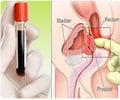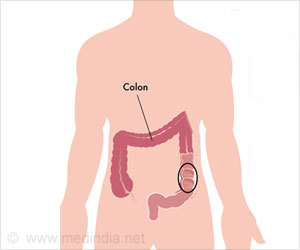A 10-year long clinical trial has revealed that a radiotherapy regimen that involves higher doses of radiation is better for patients suffering from localized prostate cancer than lower doses

The findings, published in The Lancet Oncology today (Wednesday), come from the major RT01 phase III trial. The trial was led by Professor Dearnaley at The Institute of Cancer Research, London, and The Royal Marsden NHS Foundation Trust, and was funded and conducted by the Medical Research Council Clinical Trials Unit at UCL. The study also involved several leading clinical research centres in the UK, New Zealand and Australia.
The study also demonstrated the overall effectiveness of radiotherapy for men with localised disease. Almost three quarters of men treated with either the more or less intensive radiotherapy regimes were still alive after 10 years.
Set up in 1998, the trial split 843 men with localised prostate cancer into two groups to compare the two doses of radiotherapy. Some 421 men had the less and 422 the more intensive treatment regimes. Both groups also had standard hormone-deprivation treatment alongside their radiotherapy.
The five-year results of the trial have previously shown the benefits of dose-escalated radiotherapy, and played an influential role in changing NICE guidance to recommend it in prostate cancer. Dose escalation is now the norm for localised prostate cancer in the UK.
The new 10-year results further strengthen the evidence for choosing dose-escalation radiotherapy, as well as showing the long-term benefits of the treatment.
Advertisement
Men who received the higher dose were more likely to have side-effects associated with radiotherapy, but few men had severe side-effects. Receiving the higher dose reduced the need for follow-up hormone treatment, which also carries a risk of side-effects.
Advertisement
Study leader Professor David Dearnaley, Professor of Uro-Oncology at The Institute of Cancer Research, London, and Honorary Consultant at the Royal Marsden NHS Foundation Trust, said:
"Our study has proved that treating men with localised prostate cancer using higher doses of radiotherapy is more effective than a less intensive regime. The dose-escalated regime is safe in the long term, and reduces the chances that a cancer will return and men will require further hormone-deprivation treatment. The side-effects of hormone treatment do need to be balanced against those of the extra radiotherapy doses, but overall our study has shown men are better off after having the escalated regime, as is now the norm in the UK.
"Another key finding to come out of our study is that radiotherapy in general is both a safe and an effective treatment for localised prostate cancer. Almost three quarters of men treated with either the more or less intensive radiotherapy regimes are still alive after 10 years, and of the men who have died, less than half actually died from prostate cancer.
"Further refinements in radiotherapy techniques since our trial began have made treatment even safer and are very important as men with localised prostate cancer have such favourable long-term survival prospects."
Matthew Sydes, Senior Scientist and Statistician at the MRC Clinical Trials Unit at UCL, said:
"The RT01 trial has already changed how men with localised prostate cancer are treated. The current NICE guidelines recommend the use of the higher dose of radiotherapy, based on the five-year results of RT01. The trial also helped to develop guidelines on how to limit the radiation that organs near the tumour receive, and helped hospitals across the UK to introduce quality-assured conformal radiotherapy. It is now contributing to biological studies to help better understand the disease and the side-effects of radiotherapy."
Source-Eurekalert

![Prostate Specific Antigen [PSA] & Prostate Cancer Diagnosis Prostate Specific Antigen [PSA] & Prostate Cancer Diagnosis](https://images.medindia.net/patientinfo/120_100/prostate-specific-antigen.jpg)











